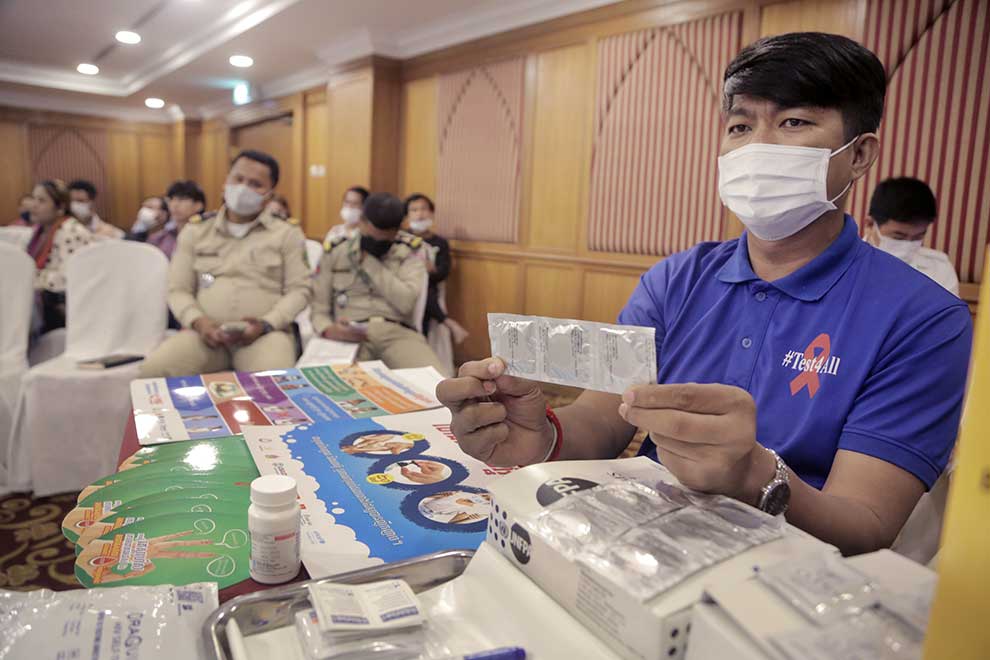
KHANA officials hand out condoms at a workshop to fight against HIV/AIDS on October 10. Heng Chivoan
A workshop on disseminating information and engendering a more supportive environment in the fight against HIV/AIDS was held on October 10, as Cambodia targets eradication by 2025, the Khmer HIV/AIDS NGO Alliance (KHANA) said.
KHANA held the workshop in collaboration with the National AIDS Authority, the National Centre for HIV/AIDS, Dermatology and STD (NCHADS), the Cambodian Men’s Health Organisation and Cambodian Woman for Peace and Development.
The purpose of the workshop was to disseminate information on HIV/AIDS response strategies and increasing strategic cooperation with stakeholders – including key populations, owners of entertainment establishments, healthcare providers, local authorities and institutions – for a more effective response.
The government has set a goal of eliminating HIV in the Kingdom, with the target of “95-95-95”, by 2025, while there is the global goal of 2030.
According to UNAIDS, “95-95-95” refers to 95 per cent of all people living with HIV knowing their HIV status, 95 per cent of all people with diagnosed HIV infection receiving sustained antiretroviral therapy, and 95 per cent of all people receiving antiretroviral therapy to have viral suppression by 2025.
A 2021 NCHADS report found that 62,561 people in Cambodia living with HIV were receiving antiretroviral treatment, while there were some 1,100 new infections.
“This figure shows an increase in the rate of HIV infection, especially in key populations, including men who have sex with men, transgender persons and women in the entertainment services,” a KHANA notice said.
The institutions that took part in the workshop are currently implementing two main strategies in response to HIV, the Kingdom’s largest local HIV/AIDS NGO said.
These involved a programme to protect and prevent its spread by promoting preventive education in the community, particularly within key populations, with 100 per cent condom use, pre-exposure prophylaxis and HIV testing.
They were also promoting nationwide free treatment and care with antiretroviral drugs and available services.
KHANA executive director Chuob Sok Chamroeun said that for a more effective response to HIV/AIDS, it is necessary to engage together, especially key populations, in prevention, with the use of condoms and the accessing of treatment.
Anyone suspecting they have been exposed to HIV must be brave and get tested, he said, while people finding they have been infected need to receive treatment and care.
The support of health service providers and relevant authorities was also very important in creating a better and more supportive environment, he added.










